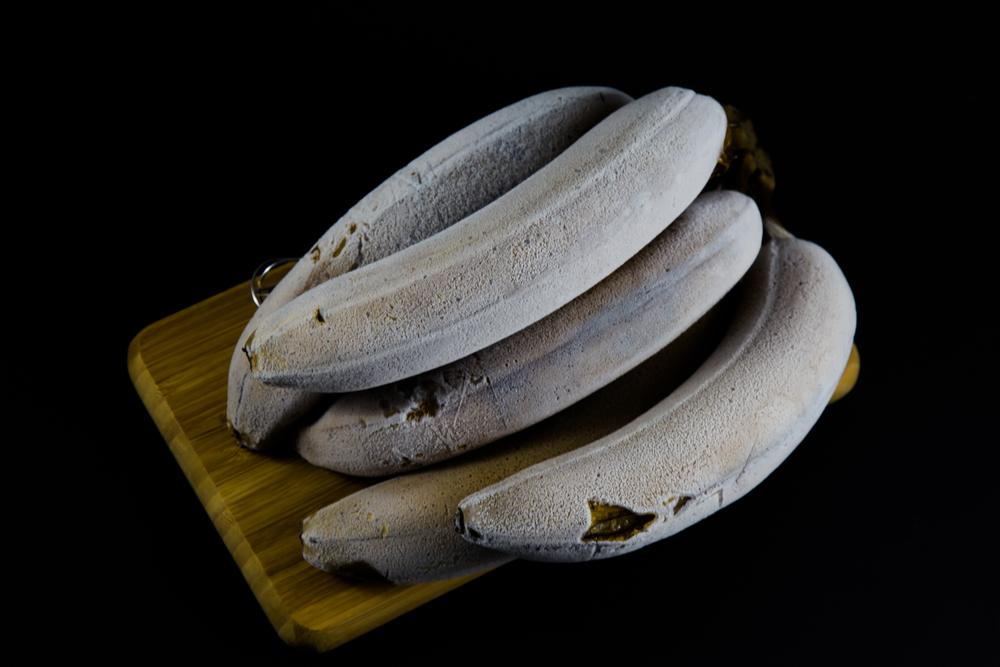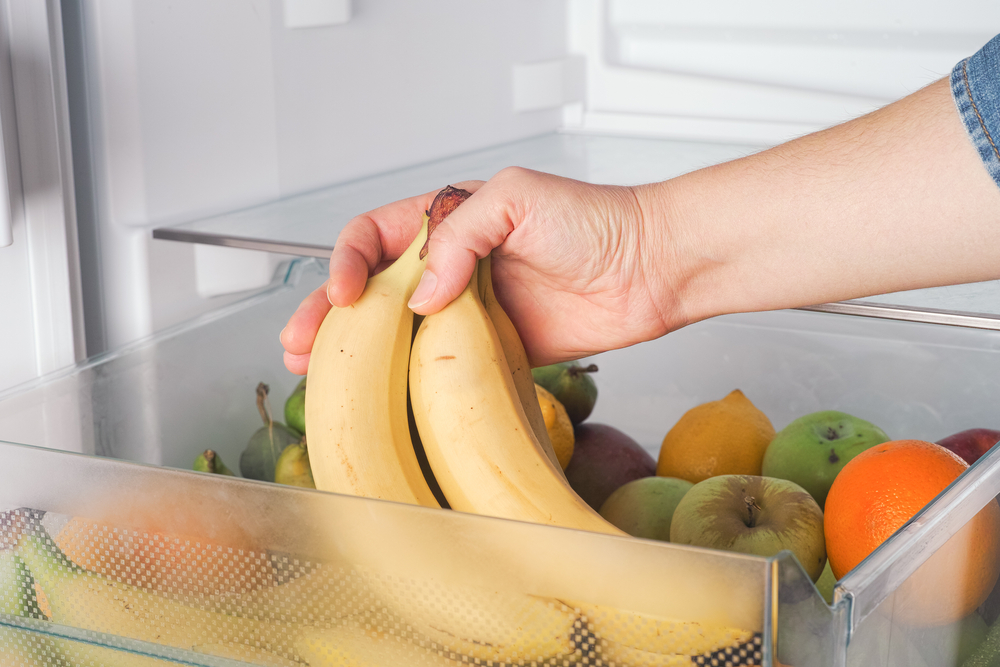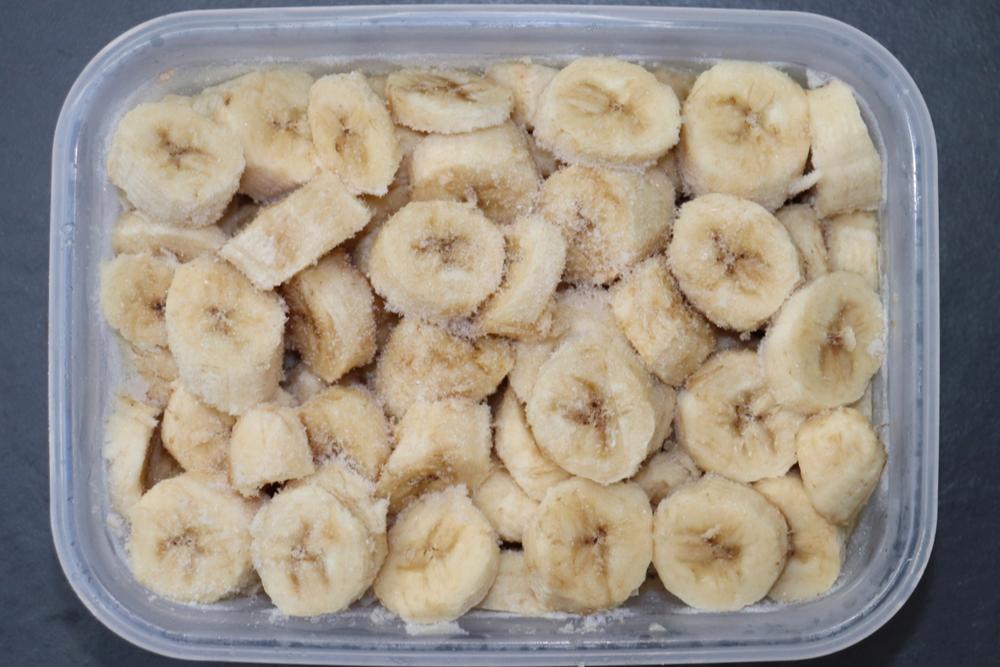Bananas are deliciously hearty fruits beloved by many cultures around the world. They're low in calories, high in potassium, and a good source of dietary fiber.
In addition to being healthy, bananas are incredibly versatile. You can eat them as a snack, top your pancakes with them, add them to smoothies, and even make fantastic banana bread.
The only flaw they have, along with most other fruits and vegetables, is that they don't last very long. If you buy them green at the supermarket, they take a few days to ripen, and then you only have a couple more before they begin to brown.
Fortunately, technology has come a long way, and it turns out that humans can prolong their shelf life by freezing bananas. This way, this avoids food waste and increases shelf life.
If you're interested in saving your bananas for long-term use, keep reading to find out if they can go bad in the freezer or get freezer burn.
Bananas will generally stay fresh for 2 - 3 months after you freeze them. Of course, if they're properly frozen, they can last an indefinite amount of time.
The consensus is that the banana's insides will remain generally unchanged for about 3 months and still be of decent quality for up to 6 months. After that, bananas will still be fine to eat, but they may become mushy and gain other unpleasant ailments.

Unpeeled Frozen Bananas Will Turn Black, but the Inside of the Banana is Still Good to Eat for at Least a Couple of Months
The USDA states that while the flesh of the banana will retain its quality in freezing temperatures, the banana peel will be damaged and inevitably turn black when dethawed.
If you open the freezer and the bananas have browned, it doesn't mean they're not fit to eat. They simply don't have any commercial value.
Yes, bananas can get freezer burn. As previously mentioned, bananas will retain their quality for about 3 months. After that, ice crystals may start to form, and the bananas can get freezer burn.
Freezer burned food tastes awful - and bananas are no exception. While freezer-burnt bananas are still safe for consumption but have deteriorated quality. This is because freezer burn draws out the moisture, making it drier.
Oxidation can also be a cause of freezer burn. You'll want to make sure that your bananas are vacuum sealed in an airtight container or plastic bag in order to help prevent freezer burn.
Should you freeze or refrigerate your bananas? This question is contingent upon when you're going to use them.
Refrigerating a fully ripe banana will allow you to extend its life to about 5 - 7 days. Simply chilling the fruit won't cause the peel to be brown, and the flesh will remain firm.

You Can Put Bananas in the Refrigerator to Extend Shelf Life a Few Days - But Freezing Them Preserves Them for Much Longer
This method will keep your bananas for slightly longer without affecting the quality. The only downside is frozen bananas last much, much longer.
If you're planning on using your bananas in the long run, then freezing is the better option. They won't be the same as when you froze them, but they'll still be edible for many months.
Whether you freeze your bananas, refrigerate them, or leave them at room temperature depends on how long you plan to have them and the intended use of the bananas.
There are a few different ways to freeze bananas. Keep in mind before you place them in the freezer, make sure they're fully ripened and not overly browning. Toss - don't freeze - an overripe banana. The goal is to make sure you're freezing a fresh banana - not one that has already gone bad.
An unpeeled banana can be tossed into the freezer as is. While the peel's cellular structure may begin to break down and brown, the inside will remain edible. This may take up excessive room, so if space is an issue, you might want to opt for one of the other options.
You can also pre-peel the bananas and seal them in a freezer bag or a vacuum-sealed airtight container. This way, you have easy access to the frozen bananas and don't have to worry about the corroded peel. Limiting the amount of oxygen, can help t
The final way to store your bananas in the freezer is to cut them into slices and put them in a container. This method is ideal for adding bananas. Once you remove the bananas from the freezer, you can add the sliced bananas to smoothies, yogurt, and shakes.
If you'd like to safely defrost your frozen bananas, place them in the fridge roughly one day before you intend to use them.
Be warned: defrosting bananas in the microwave will cause them to become highly mushy and unpleasant. This is okay if you're using them in a recipe that calls for mushed-up bananas but isn't the best to eat for breakfast.
If you need a quick solution, try sealing the peeled, frozen bananas in a ziplock bag and placing them in mildly hot water for about 15 minutes.
You can choose to defrost them at room temperature, and while this is faster than putting them in the fridge, harmful bacteria may begin to grow in this environment rapidly.
The skin of the frozen bananas will turn brown, and the flesh may become a bit mushier than usual (depending on how long they are frozen). Squishy insides don't necessarily mean they're bad, but they might not be as pleasant to snack on alone.
Instead, you can use them in almost any recipe that calls for bananas; banana bread, desserts, flapjacks, muffins, etc.

Sliced, Frozen Bananas can be Used for a Variety of Delicious Purposes
Dethawed bananas are also a great addition to yogurt, oatmeal, and cereal. Still, frozen bananas have their uses as well. You can use your precut, frozen banana slices in smoothies, ice cream, banana pancakes - and even banana ice cream (they're already frozen).
Frozen bananas, dipped in chocolate, are also an excellent summer treat.
While frozen bananas will last a very long time, improper freezing habits can vastly expedite the process of them going bad and create a food safety issue. For example, if they're taken out of the freezer and then re-frozen, this can cause them to spoil.
Since bananas automatically turn black in the freezer, it can be hard to tell when they are spoiled. The best possible indicator is the way they smell. If they smell like they're rotting or have a foul stench, it's best to throw them out.
Also, if you notice a white, furry substance on your bananas that isn't frost, it's probably mold, and they are no longer okay to use.
Bananas that taste bitter or soiled should be discarded for safety.
Here are some frequently asked questions around the web about bananas and storing bananas:
The yellow bananas you commonly find in the produce section of your supermarket are called the Cavendish Banana. They are virtually everywhere because they are rugged and survive shipping from Central and South America before spoiling. They are not the most flavorful banana available, but they pack in a lot of nutrition.
How Chiquita Bananas are Grown
No, once bananas are exposed to extreme temperatures the ripening process stops. If unripe bananas are placed in the freezer, they will remain that way even when defrosted.
If they were previously frozen or cooked, the answer is most likely yes; they are safe to eat. If they're sitting at room temperature or in the fridge, then a blackened peel means the bananas have gone bad and are not safe for consumption.
According to industry experts, the freezing process helps fruits and vegetables retain some of their nutrients, although they may lose some vitamins such as vitamin C and various B vitamins.
Freezing them will also kill harmful bacteria and prevent the loss of flavor. While they are not frozen in shipping, they are sometimes chilled to slow ripening before they hit the market.
